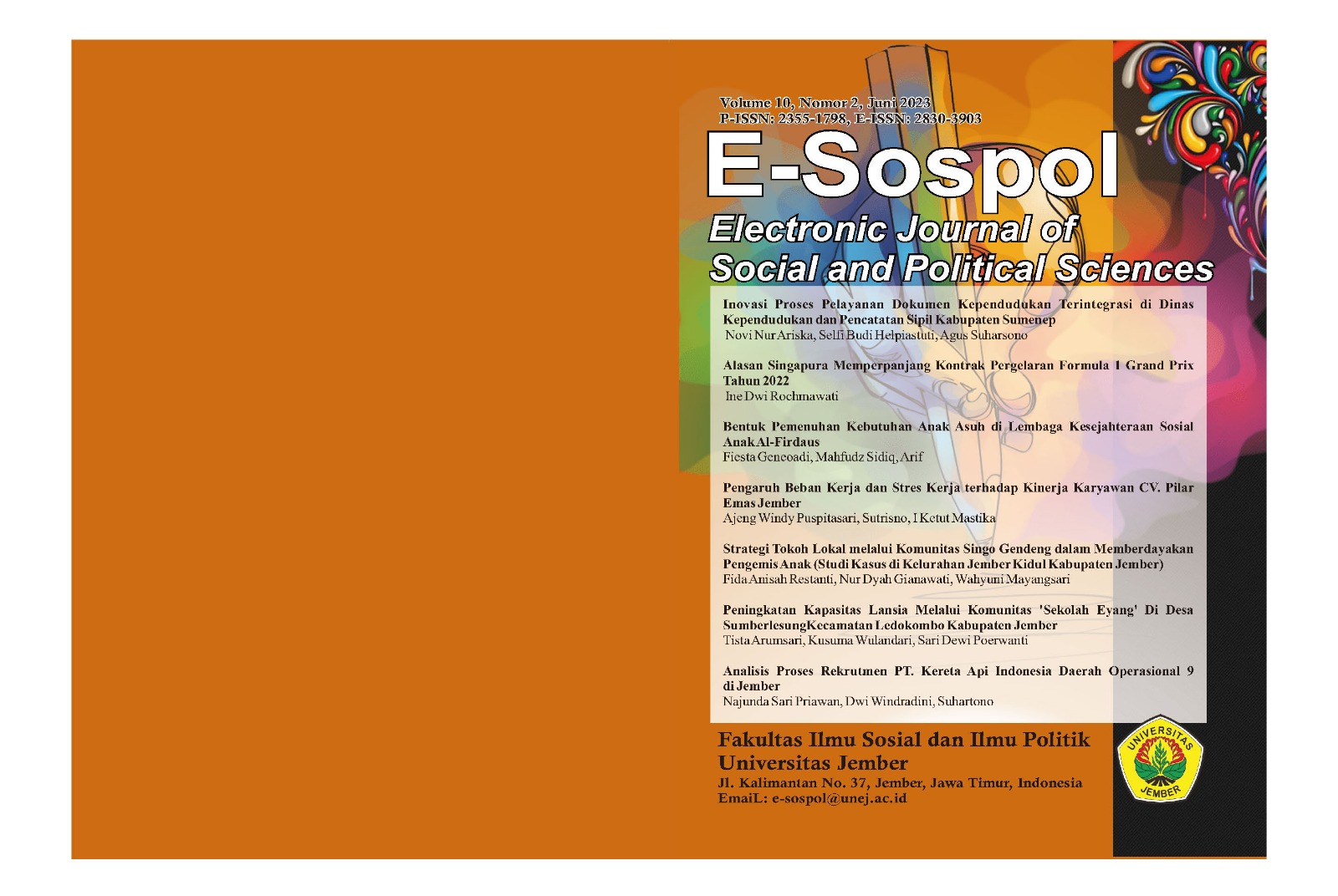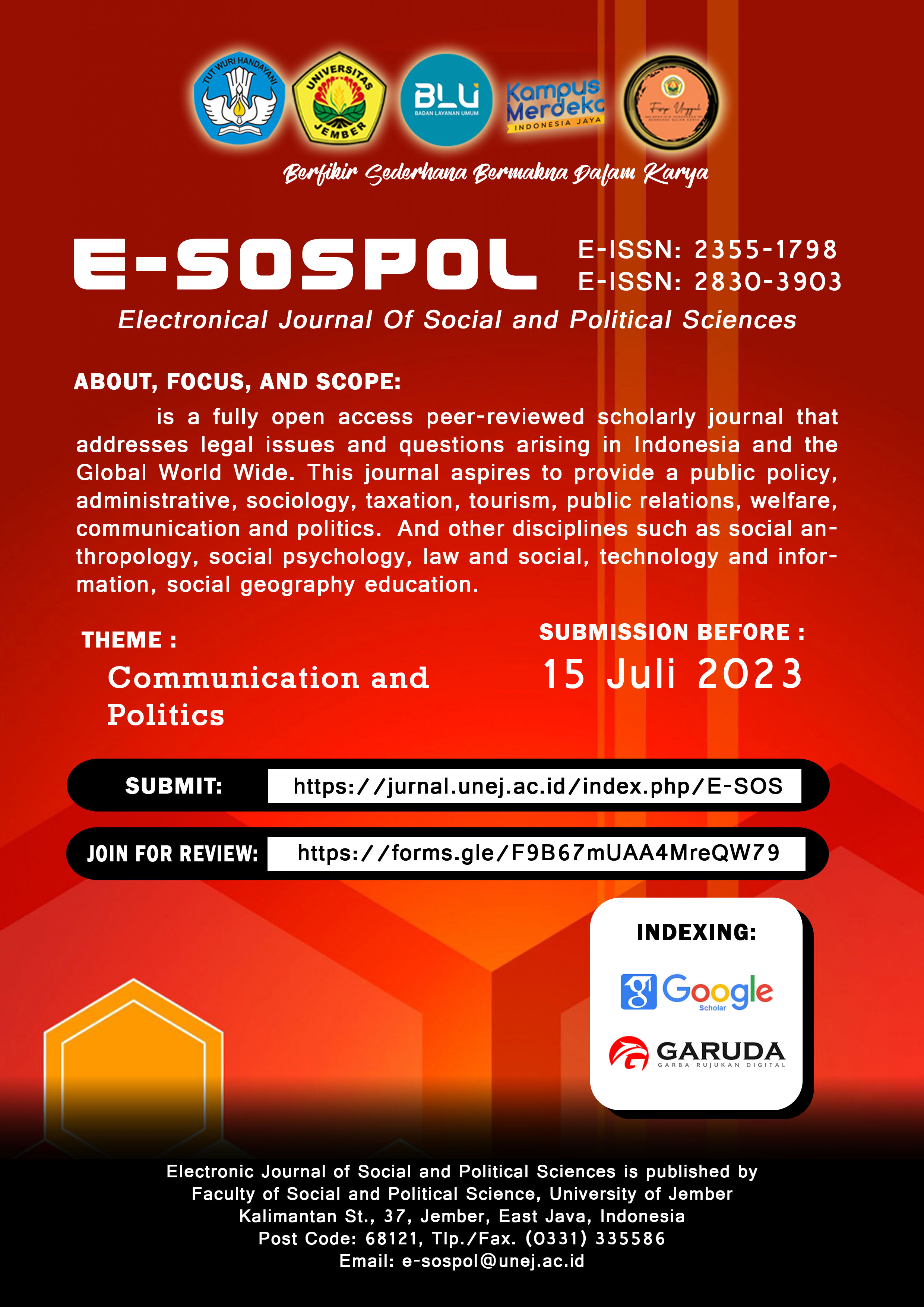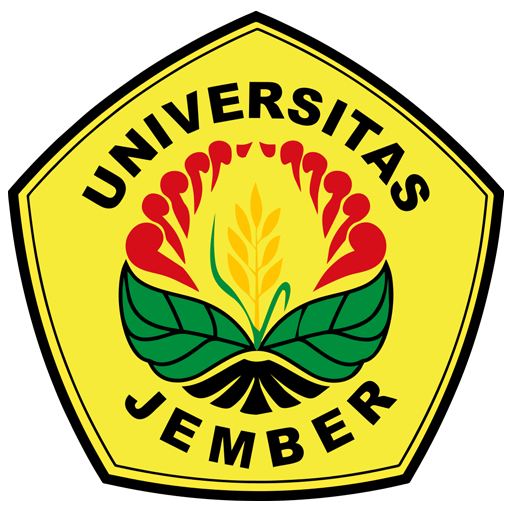Strategi Tokoh Lokal melalui Komunitas Singo Gendeng dalam Memberdayakan Pengemis Anak
Abstract
Beggars have become the main problem in various regions, especially in urban slum areas due to the poverty conditions in their environment. One of the villages located in the Talangsari area in the Jember Kidul Village, which is often stigmatized by the local community by the nickname "Beggar's Village" because many of its children beg. This moved one of the village's local leaders to carry out a strategy to empower village children through the Singo Gendeng Community. This community was established as a forum for educating traditional arts that were developed such as jaranan art, reog and so on with the aim that the habit of begging in children can be reduced and replaced with creativity and artistic skills. This research approach is qualitative with the type of research used is a case study. The technique of determining the informants and research locations is purposive. Data collection techniques include observation, interviews and documentation. The results of this study indicate a strategy carried out by local leaders through the Singo Gendeng Community in an effort to empower children to beg by fostering children's interest in art so that children are interested in participating in art activities. Besides that, it also cultivates potential and develops artistic talent in children through dance training activities, practicing playing musical instruments, performing and making crafts, so that their skills grow well.
Penulis yang mengusulkan naskahnya untuk dapat diproses penerbitannya pada e-SOSPOL dianggap telah menyetujui beberapa hal sebagai berikut:
1. Penulis tidak dapat menarik naskah yang telah usulkan untuk diproses hingga mendapat jawaban dari Ketua Dewan Penyunting atas status naskah artikel ilmiahnya (diterima atau ditolak untuk diterbitkan).
2. Penerbit tidak bertanggung jawab terhadap kasus plagiasi atas artikel yang terbit pada e-SOSPOL
3. Penerbit tidak bertanggung jawab atas data dan isi dari artikel yang diterbitkan pada e-SOSPOL, dan sepenuhnya merupakan tanggung jawab penulis.







.png)

